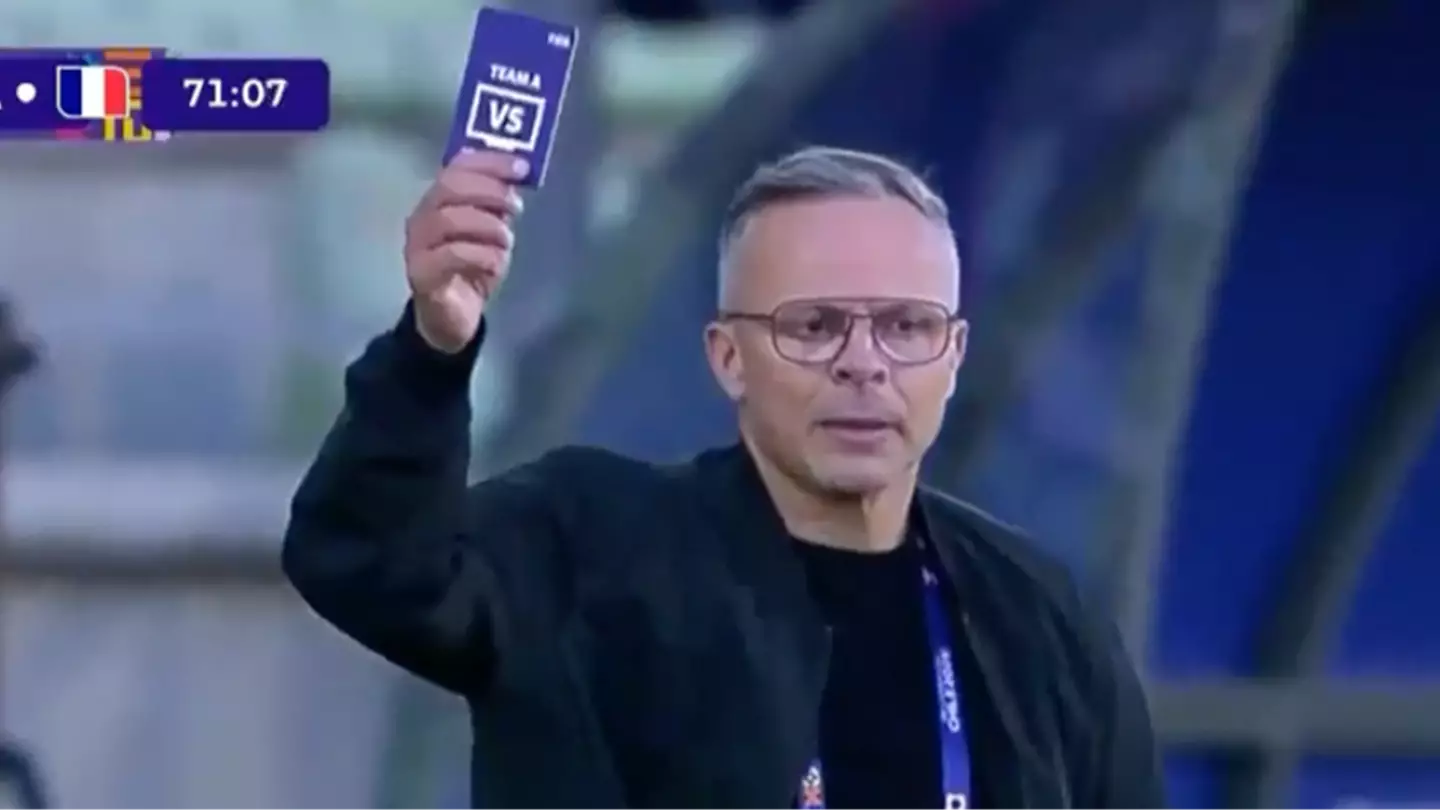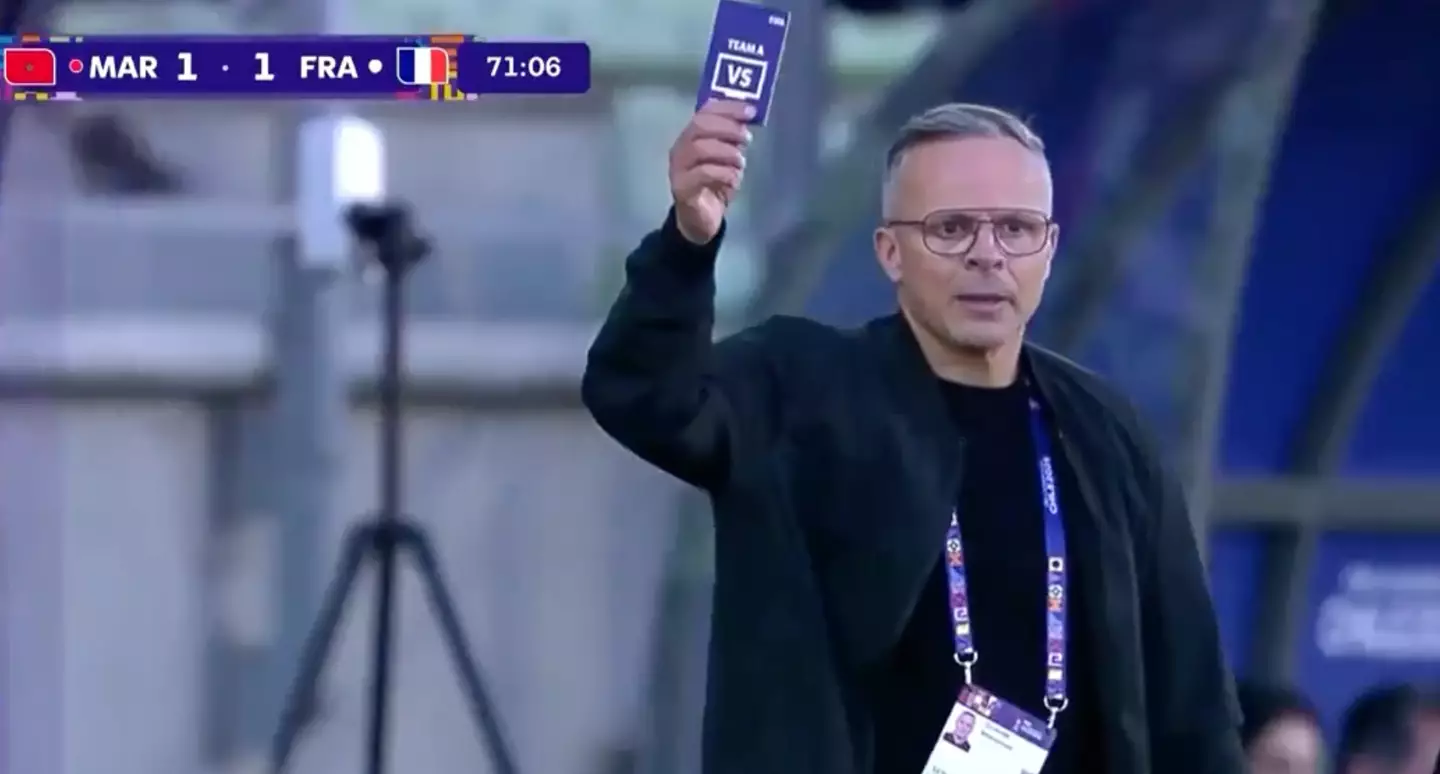
Morocco manager Chamed Ouahbi used the new "review request card" to challenge a decision that was made during their under-20 World Cup clash against France.
Ouahbi's side booked their spot in the under-20 World Cup final on Wednesday, beating favourites France in a dramatic penalty shoot-out as third-choice goalkeeper Abdelhakim El Mesbahi performed heroics.
El Mesbahi, who hadn't played in any of Morocco's previous games at the tournament, had printed a small graphic on his water bottle of where the France players could direct their penalty kicks.
Away from the shoot-out and one of the big talking points from the semi-final clash was the use of Football Video Support (FVS) during normal time.
Advert
With 72 minutes on the clock, a Moroccan player went down inside the France box.
Moments later, referee Gustavo Tejera waved away appeals, but Morocco manager Mohamed Ouahbi felt the official had wrongfully turned down a penalty and produced a purple "review request card".
As explained by FIFA, only the team’s head coach (or, in their absence, the senior team official present in the technical area) can make a review request, which must be made immediately after the incident.
The coach or senior team official will request by twirling their finger in the air and giving a review request card to the fourth official. Each player is also entitled to ask their head coach to make a review request.
The system is used only in the event of a possible clear and obvious error or serious missed incident in relation to the following scenarios, such as goal/no goal, penalty/no penalty or direct red cards (not second cautions).
In the semi-final clash between Morocco and France, referee Tejera would jog over to the screen, although he was not convinced enough to give a penalty and restarted play.
FIFA stress that FVS is not a replacement for the VAR system. Instead, a portable, sideline-operated system is used. But why?
"The core goal behind FIFA’s promotion of FVS is clear: to democratise football by making video review technology available as an additional option – not only for elite competitions with substantial resources, but also for leagues and associations that would be unable to afford the video assistant referee (VAR) set-up," state FIFA.

They add: "With lower infrastructure costs and simplified operations, FVS is not a replacement for the VAR system, but it nevertheless empowers referees with critical decision-making support while ensuring that accuracy and fairness are within reach for competitions of all sizes."
Ahead of the 2025-26 campaign, legendary referee Pierluigi Collina, who is now the chairman of FIFA's Referees Commission, picked the third division of Italian football, Serie C, to pilot the new FVS system.
“FVS is a tool to support referees in competitions with fewer resources and cameras," said Collina.
"It should not be seen as VAR or as a modified version of it, as it does not include video match officials monitoring every incident. We’re very encouraged by the first results and look forward to helping our Member Associations benefit from this technology."
Morocco will take on Argentina in the under-20 World Cup final on October 19.
Topics: Morocco, France, FIFA World Cup, FIFA